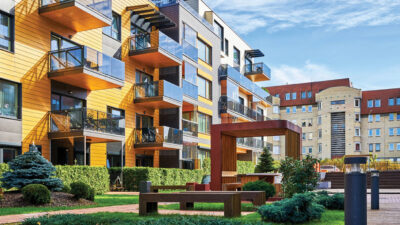With the apartment market in Chicago showing no signs of slowing down, investors are getting more creative in their search for yield. For some, that has meant taking big bets on large-scale developments, while for others it’s a “flock to the suburbs” and tertiary markets. Now there is a phenomenon that has downtown Chicago owners clamoring for a new property type: condo deconversions.
As noted in a recent Chicago Tribune article, “Enticed by a steady flow of high rents and low-interest-rate loans available, developers and investors are seeing an opportunity.” That opportunity is condo deconversion, a process by which a condominium association sells each individual unit (in bulk) to a single investor who converts the units to rental product.
Many of the buildings that are prime candidates for deconversion are seeing slower market timing and unit owners who want to sell simply can’t. Oftentimes these units are smaller one- and two-bedroom condos that are not highly sought after in today’s market.
However, these smaller units are actually preferred in the current rental market, especially in neighborhoods where they provide renters a more affordable option than the Class A product being built and marketed in the $3 per square foot range. These condos typically offer higher quality than the tired, vintage rental product in the area. This is due to the fact that condo units maintained by owners are generally in superior condition than similar properties that historically operated as apartments.
Especially for those condo owners who purchased at the height of the market, a condo deconversion can generate a higher value than is currently reflected in the condo sale market. For investors, a deconversion can provide the opportunity to purchase properties and lease them up quickly in highly sought-after rental neighborhoods without the cost and risk of development. With construction and land costs at an all-time high and the new Affordable Requirement Ordinance making project economics in Chicago more complex, these properties can be purchased well below current replacement cost with considerably lower risk.
Compared to new construction, condo deconversions also have the advantage of avoiding upsetting the “NIMBYs” worried about changing the character of a neighborhood. Additionally, condo deconversions offer an attractive valuation structure, as these properties are valued on a cost-per-unit basis rather than on a capitalization rate as the properties can only be underwritten on proforma.
As with all real estate deals, there are potential challenges that can come with a transaction of this nature. Several important factors to consider are:
- The health and organization of the homeowners’ association, which can impact the attractiveness to potential investors and how quickly the sale terms can be finalized
- Different finishes and appliance packages in previously owned units, which can create confusion when sales proceeds per owner are calculated
- The fact that 75 percent of condo association ownership interest is needed in order to force a sale of an entire property
- The risk of “holdout” condo owners seeking higher proceeds
While condo deconversions can be complex, this type of transaction can offer individual unit owners and investors an opportunity otherwise unseen in the market. With an experienced team in place to facilitate the sale, this approach can be beneficial for all parties involved.
Jack is an Associate with Chicago’s Investment Services Group, specializing in multifamily investment sales. Jack provides financial analysis and market research to aid in the marketing and sale of multifamily assets across the Chicago Metropolitan Area and greater Midwest.

 Colliers Insights Team
Colliers Insights Team
 Aaron Jodka
Aaron Jodka
